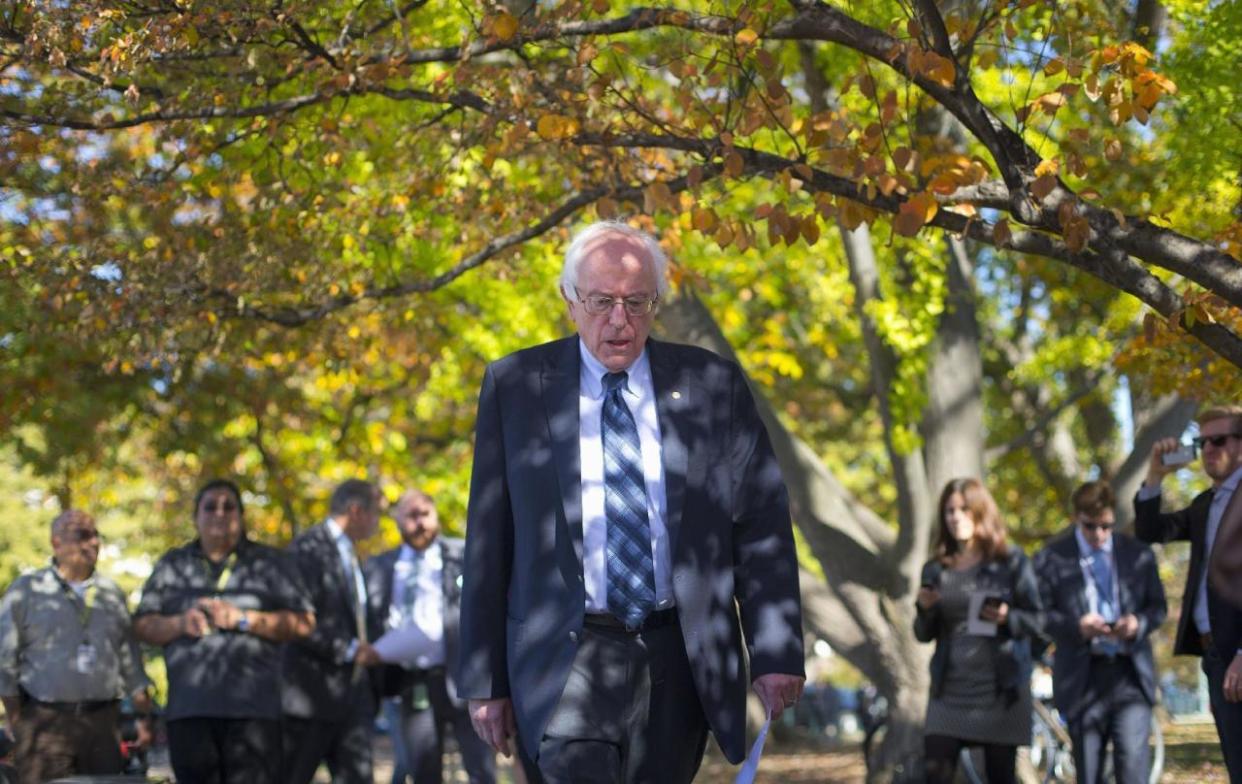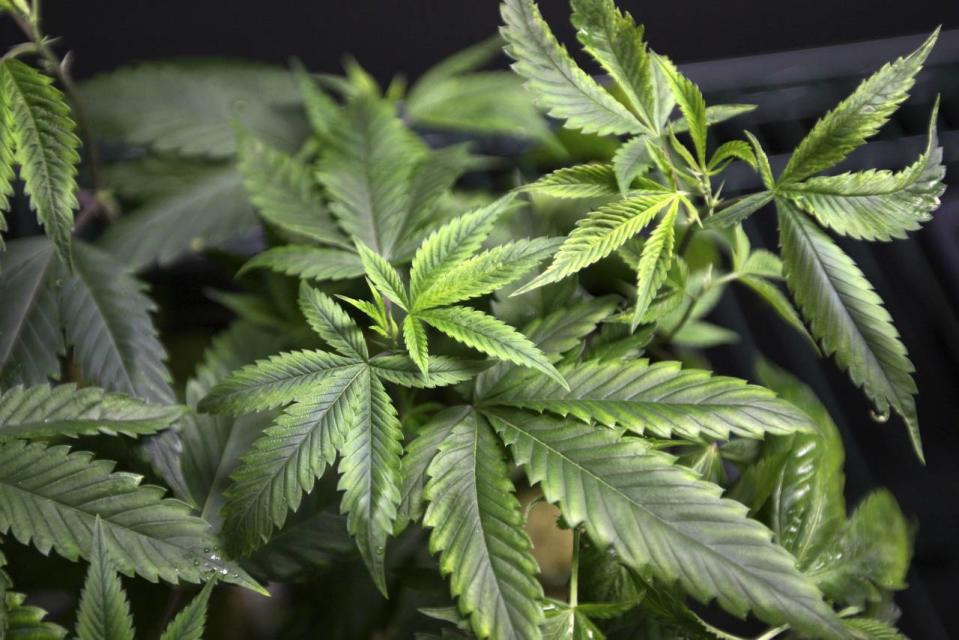Bernie Sanders introduces Senate bill to end federal marijuana prohibition

Sen. Bernie Sanders introduced a bill on Wednesday that would rescind all federal penalties for growing or possessing marijuana. (Photo: Pablo Martinez Monsivais/AP)
He wasn’t blowing smoke after all.
Vermont Sen. Bernie Sanders introduced a bill in the Senate on Wednesday that would rescind all federal penalties for growing or possessing marijuana — allowing states to determine their own laws.
If successful, the Democratic presidential candidate’s Ending Federal Marijuana Prohibition Act of 2015 would remove all references to cannabis in the Controlled Substances Act.
There would still be penalties for transporting the plant from states or jurisdictions that have legalized it to places that have not.
Last month, the self-identified democratic socialist became the first presidential candidate from a major U.S. political party to speak out in favor of legalizing and regulating recreational pot use by adults.
Recreational marijuana is currently legal in Washington state, Oregon, Alaska, Colorado and Washington, D.C., but is still illegal under federal law.
The Marijuana Policy Project (MPP), a nonprofit dedicated to marijuana reform, noted that this is the first bill proposing the eradication of marijuana prohibition at the federal level introduced in the Senate; it is also the fourth marijuana policy-reform bill.
This year, Sen. Cory Booker, D-N.J., Sen. Kirsten Gillibrand, D-N.Y., and Sen. Rand Paul, R-Ky., introduced the Compassionate Access, Research Expansion, and Respect States Act of 2015, which would allow states to legalize medical marijuana without federal interference. Sen. Ron Wyden, D-Ore., and Sen. Jeff Merkley, D-Ore., also introduced bills that would deal with the tax status of marijuana businesses and ensure they have access to banking services.
Mason Tvert, director of communications for MPP, said that Sanders’ actions are speaking even louder than his words last month, and he hopes that it will lead his colleagues in Congress to discuss the need for policy reform surrounding pot.
“The science is clear that marijuana is less harmful than alcohol, and that should be reflected in our nation’s marijuana policy,” he said in a news release. “Sen. Sanders is simply proposing that we treat marijuana similarly to how we treat alcohol at the federal level, leaving most of the details to the states. It is a common sense proposal that is long overdue in the Senate.”
Businesspeople in the nascent marijuana industry were quick to speak out in support of the legislation.

Sanders’ bill is the first introduced in the Senate that proposes the eradication of marijuana prohibition at the federal level. (Photo: David McNew/Reuters)
Leslie Bocskor, a managing partner of Electrum Partners, a consulting firm specializing in the medical marijuana industry, said in a statement that removing marijuana from the federal government’s list of banned substances will alleviate several unwanted byproducts of the U.S. war on drugs:
“This includes reducing our rate of incarceration for nonviolent offenders, addressing racial injustice enabled by the criminalization of marijuana, not to mention increased tax revenue, a regulated marketplace keeping marijuana out of the hands of children, job creation, the destruction of criminal cartels by removing their revenue streams and keeping wealth in the communities that have established regulated frameworks.”
Similarly, Eddie Miller, the chief strategy officer of GreenRush, a medical marijuana delivery service, praised Sanders for making history with his announcement.
“The political tides in the United States towards legalization of cannabis have shifted permanently,” he said in a statement. “For the first time ever, a nationally prominent and leading presidential candidate has officially endorsed the repeal of cannabis prohibition.”
Citizens Against Legalizing Marijuana (CALM) is a political-action committee in California dedicated to fighting against marijuana legalization. The group argues that federal laws against the use and cultivation of marijuana should not be softened.
“After decades of study, the FDA continues to reaffirm that there is no medical benefit provided by the use of smoked marijuana and that, in fact, considerable harm can be caused by such use,” the organization said on its website.
Many Republican presidential candidates oppose legalizing the drug for recreational or medicinal use, including former Florida Gov. Jeb Bush, Ohio Gov. John Kasich, former New York Gov. George Pataki, former Virginia Gov. Jim Gilmore, former Pennsylvania Sen. Rick Santorum and New Jersey Gov. Chris Christie, who said his stance has been strengthened with each trip to Colorado.
“For the people who are enamored with the idea, with the income — the tax revenue — from this, go to Colorado and see if you want to live there,” Christie said in April 2014. “See if you want to live in a major city in Colorado where there’s head shops popping up on every corner, and people flying into your airport just to come and get high. To me, it’s just not the quality of life we want to have here in the state of New Jersey, and there’s no tax revenue that’s worth that.”
Please click here to learn more about where the candidates stand on this issue.
Related graphic: Where the candidates stand on the issues >>>

